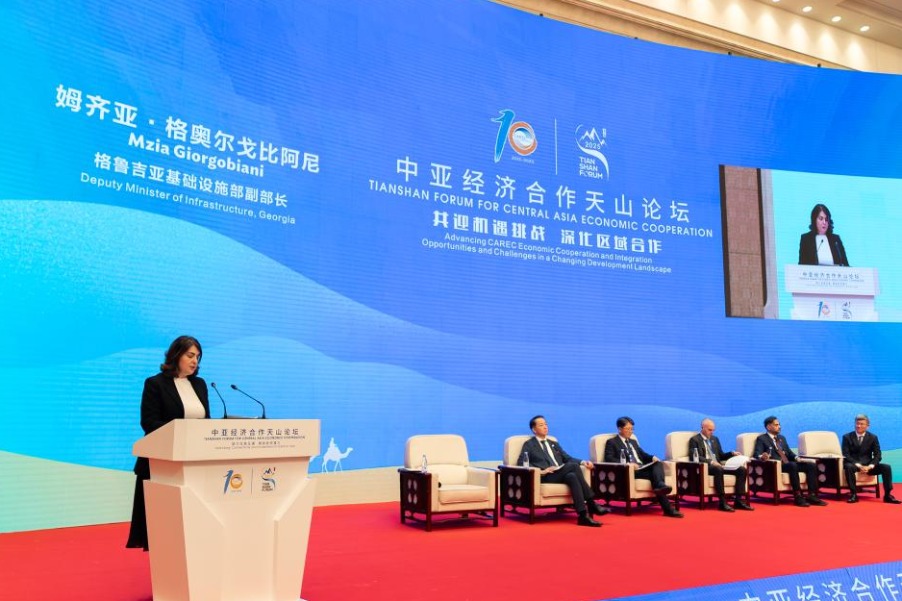Digital access for people with disabilities improved


A motion submitted to the top legislature this time last year fast-tracked a law's rollout with an aim to promote digital access for those with visual and hearing disabilities amid a fast-growing older population.
It also bolstered the supply of accessible digital products that expand the group's entertainment options, said the motion's author, Qian Fangli, who last year was elected a deputy to the 14th National People's Congress, the top legislative body. Her term will last through 2028.
The motion's stated aim was to construct a barrier-free environment for digital consumption.
Qian suggested in the motion that the legislature speed up enacting the Barrier-Free Environment Construction Law, and revise existing rules and laws with the digital needs of visually and hearing impaired communities in mind.
She noted that China's past efforts to curb such barriers mainly targeted the physical world, such as adding accessible facilities to public spaces, but fewer rules were available to ensure digital access, including for the disabled.
"We have 17 million visually impaired citizens, and 27 million with hearing problems," she said, adding that as China ages, more are expected to develop visual and hearing-related problems.
In the motion, Qian suggested authorities use tax breaks and other incentives to guide digital service providers to revamp their products, and introduce disabled-friendly functions, such as in navigation, search engines and social media. Authorities should also advance the adoption of artificial intelligence, virtual reality and other emerging technologies in such makeovers.
"Training is also needed to improve disabled people's digital literacy," she said.
The motion sought to shore up the supply of accessible cultural products online. It advised favorable policies for service providers to set up special channels in their products catering to disabled users. Authorities should also attempt to mobilize content producers and third-party organizations to make mainstream content accessible and deliver such content to disabled users using information technologies and big data.
"Authorities should also explore the option of setting up a special fund to foster the industry," she said.
Qian, who has suggestions regarding artificial intelligence and new energy vehicles for this year's NPC meeting, which opens on Tuesday in Beijing, said progress in accessibility across the board is a sign of civilization.
"Reducing such barriers is a very specific thing, but it has far-reaching benefits," she said.
The State Council, China's Cabinet, in 2012 introduced a regulation on promoting a barrier-free environment. Prompted by Qian's motion, the NPC Standing Committee in June passed the Barrier-Free Environment Construction Law, which became effective three months later.
"Traces of many suggestions in my motion can be found in this new law," Qian said. "China now has a more solid network of rules and legislation on promoting accessibility."
Qian also noticed notably improved accessibility in cyberspace.
Streaming services, including those owned by Tencent and Youku, have rolled out accessible viewing options, she said.
lilei@chinadaily.com.cn
- Intl students showcasing global business acumen in Shanghai
- CPC expels former senior official of Guangxi
- Shanghai university unveils sustainable, efficient water treatment system
- Fire at auto business park in Jiangsu claims one life
- Magnitude 6.0 earthquake strikes Akqi county in Xinjiang
- Shenzhou XXI team to carry out first spacewalk





































